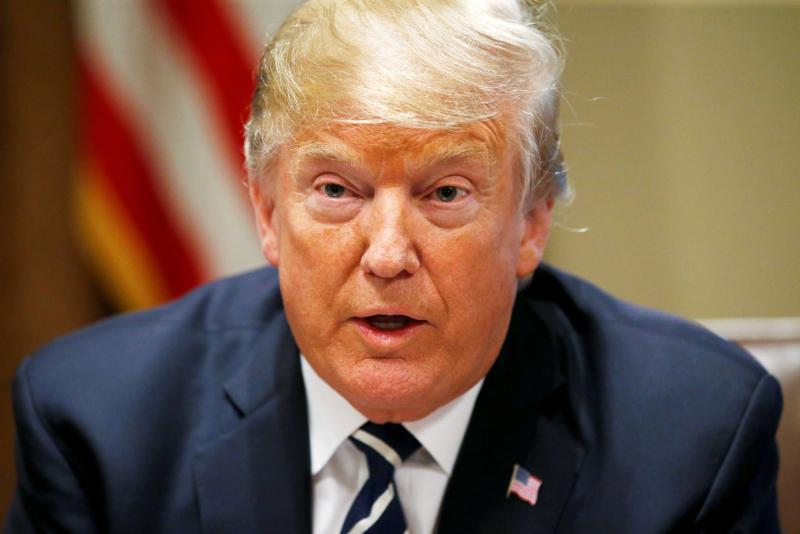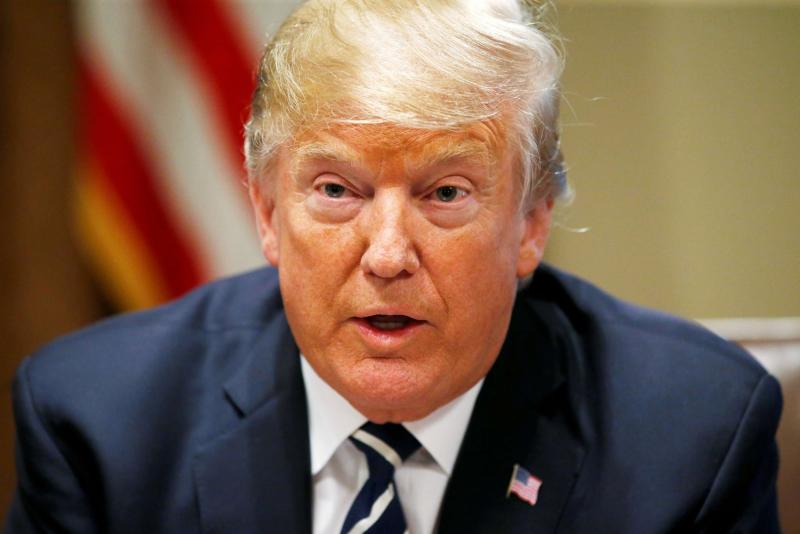A Trump-Rohani summit could be a disaster but odds for talks are remote
As a professor of conflict resolution, I favour dialogue between enemies. As Winston Churchill said, “To jaw-jaw is always better than to war-war.”
But US President Donald Trump’s stated willingness to meet with Iranian President Hassan Rohani “without preconditions” is a frightening possibility. The author of “The Art of the Deal” has been a terrible negotiator since assuming the presidency.
Trump views summits as reality television: It’s about the show, not the substance. By all accounts, he has high-level talks without adequate preparation — Trump famously believes in the rightness of his instincts — and without clearly defined agendas or objectives.
Trump considers a summit to be successful if the “chemistry” is good — meaning if the other leader praises Trump and extols his greatness.
Consider his meeting in June with North Korea’s Kim Jong-un. The main issue on the agenda was Pyongyang’s nuclear weapons programme. Trump hailed the summit but US intelligence agencies have since presented evidence that North Korea’s nuclear weapons and missile programmes remain intact. Kim, however, achieved his main objective: US acknowledgement of his regime’s legitimacy.
As for Trump’s summit with Russian President Vladimir Putin, it is uncertain what the two leaders agreed to in their private 2-hour meeting. All we can say for sure is that Putin seemed pretty satisfied afterward.
Based on these examples, Rohani should be eager to meet with Trump. As long as the optics are good and Trump feels sufficiently honoured, serious differences would likely fall by the wayside. Perhaps Rohani would invite Trump to the Throne Hall at Persepolis and let him pretend to be the Shah of Shahs. Whatever works.
Such a circus would be a disaster for the region: Trump would tout it as a great success even if it did not alter Iran’s ambitions or its hostile relations with its neighbours. Which is why it is a relief that the odds of it happening are remote.
Unlike Kim, Iran’s leaders are not seeking America’s stamp of legitimacy. Even during the negotiations over the Iran nuclear deal, there was no Obama-Rohani summit. Tehran wanted a deal, not a photo op with the leader of the Great Satan.
In response to Trump’s offer, Rohani said: “I have no preconditions for talks with the US government. If it is ready to negotiate paying compensation to the Iranian nation… we are ready to find out how the United States is going to do so and in how many instalments.” As long as the United States admits that it has been 100% wrong, Tehran has no preconditions for negotiations.
The animosity that Iranians feel towards the United States is deep (although Iranian citizens usually point out that the animosity is towards the US government, not its people).
Richard C. Baffa, senior international policy researcher at the RAND Corporation, said: “I think it is highly unlikely that the Iranian leadership will accept an invitation to meet with President Trump. I think there is just too much enmity, too little trust and a deeply ingrained anti-US worldview in Tehran. Anti-Americanism is just too integral to the identity of the Islamic Republic.”
Moreover, Trump often does not even speak for his own administration, which includes prominent anti-Iran hawks. US Secretary of State Mike Pompeo, for example, clarified Trump’s offer to meet Rohani: “If the Iranians demonstrate a commitment to make fundamental changes in how they treat their own people, reduce their malign behaviour, can agree that it’s worthwhile to enter into a nuclear agreement that actually prevents proliferation, then the president is prepared to sit down with them.”
That’s not what Trump said but it’s probably a better expression of US policy. The Iranians understand this. As Baffa said: “The US demands are high…These are conditions Iran is unlikely to accept barring a real crisis at home.”
A “real crisis at home” is what US sanctions against Tehran are intended to produce to force Iran to the negotiating table. While Baffa agrees that the economy is Iran’s Achilles heel, he also said that “up to now, the pain [of sanctions] has not been severe enough for Iran to come back to the table.”
Even if sanctions become more severe, as they likely will in November, Baffa said that “given our demands, it is not clear that they ever will [come to the table].”
There is dialogue short of presidential summits. US-Iran negotiations under Obama started as a secretive “back channel” in Oman. Similar talks could take place in the future — or may even be happening now. There is the possibility that Trump and Rohani will meet in New York in September during the UN General Assembly session.
Neither of these options offers the kind of drama that Trump craves, however. Unless Tehran approaches them on bended knee, no members of Trump’s foreign policy team would advocate for direct dialogue.
Mark Habeeb is East-West editor of The Arab Weekly and adjunct professor of Global Politics and Security at Georgetown University in Washington.
This article was originally published in The Arab Weekly.







